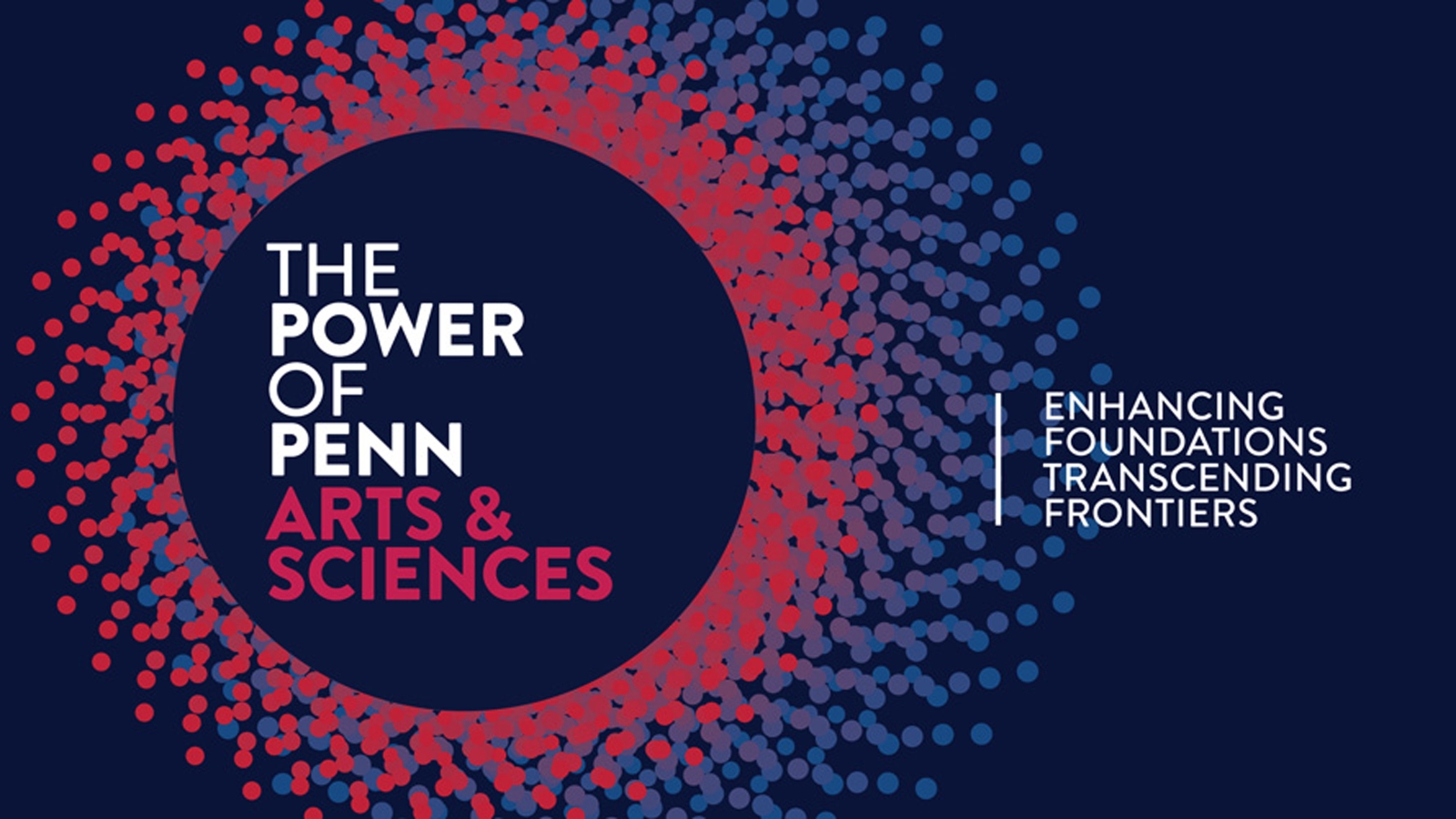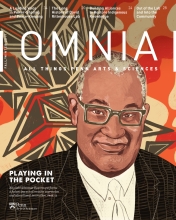The Power of Penn Arts & Sciences
Enhancing Foundations, Transcending Frontiers

It’s been a year and a half since we launched the Power of Penn Arts & Sciences Campaign and already the School has grown in extraordinary ways. Our priorities reflect some of the world’s most pressing challenges and needs. I cannot think of a better place for our outstanding students and faculty to meet these challenges and create the future of their fields. I celebrate what we’ve accomplished since the campaign began and I’m eager to see how we continue to make progress toward our ambitious goals.
- Steven J. Fluharty, Dean and Thomas S. Gates, Jr. Professor of Psychology, Pharmacology, and Neuroscience
Advancing Faculty Distinction
Our faculty are essential to excellence across the University, and we take full advantage of every opportunity to sustain and strengthen a diverse group of dynamic, collaborative scholars and teachers.
Through their research and teaching, faculty shape what it means to be at Penn Arts & Sciences. Since the campaign began, scholarly leaders and expert practitioners have joined the ranks of our already excellent faculty, giving students opportunities including working in labs alongside world-renowned scientists, taking a class with a Pulitzer Prize-winning author, and collaborating with industry leaders to tackle real-world problems.
We will continue to enhance our resources to recruit and retain the very best, through prestigious endowed chairs and other forms of faculty support including professors of practice and artists-in- residence. Matching funds are available to endow Penn Integrates Knowledge professorships, as well as Presidential Distinguished and Presidential professorships.
Realizing Student Potential
Penn Arts & Sciences teaches every undergraduate at the University, fostering the traits that distinguish Penn graduates: adults driven by curiosity, creativity, and critical thinking, who understand context and know how to communicate.
Support for our students comes in many forms, and the most elemental is our need-blind, all-grant financial aid. Offering this kind of scholarship support means that we can admit the brightest students, who are able to graduate without burdening themselves with debt. Since April 2018, 54 new scholarships have been established for students in the College.
We will continue to promote access, diversity, and opportunity through expanded resources for scholarships and for curricular innovation that will catalyze learning in every field. We seek to do this by creating additional scholarships for College students and raising funds for programs that enhance their educational experiences.
Creating a Sustainable Planet
The urgent need to revolutionize our thinking about energy can no longer be disputed. Scientific advances, combined with a deeper understanding of human interactions with the natural world, form the path to sustainable solutions to society’s energy needs.
Energy science at Penn got a major boost in the form of a $50 million gift from P. Roy Vagelos, C’50, PAR’90, HON’99, and Diana T. Vagelos, PAR’90. The gift, the largest in Penn Arts & Sciences history, is for a new building that will connect physical scientists and engineers to solve scientific and technological problems related to energy.
Naming gifts are available to support the construction of the building. In addition, the Vagelos Institute for Energy Science and Technology, an Arts & Sciences and School of Engineering and Applied Science collaboration that fosters integrative basic research, is seeking gifts to endow faculty seed grants or graduate and postdoctoral fellowships.
Harnessing the Power of the Brain
New technologies have brought about an unprecedented ability to understand brain activity. The next wave of research holds the potential to unlock insights into phenomena that span from decision making to the fundamental nature of human intelligence and to advance understanding and treatment of brain disorders.
Brain research has advanced tremendously in recent years, but deciphering the complex relationship between brain activity and behavior remains a compelling scientific challenge. MindCORE’s emphasis on collaboration enables the use of technology and methodology that no single lab could support on its own, such as the use of magnetic resonance imaging (MRI) for social science research. With MRI, researchers can see brain activity as people make decisions, solve problems, or write music, allowing greater insight into the complexity always at work in the human brain.
We will create additional opportunities for students and faculty to move brain and mind research forward with support for MindCORE’s imaging facility and application of natural science tools to social science questions.
Exploring the Human Experience
Engagement with culture, history, and creativity enriches individuals’ lives and speaks to the essence of what it means to be human. By combining traditional methods of inquiry with powerful new technology- and data-driven tools, we are opening new horizons in understanding a complex, interconnected world.
The Price Lab for Digital Humanities, funded by a gift from Campaign Chair Michael Price, W’79, and Vikki Price, supports innovative uses of technology in the study of history, art, and culture. Since its formation, the Price Lab has funded projects including Monument Lab, a city-wide public art installation, and supported research like the development of high-accuracy digital tools for archaeological fieldwork. The Lab offers the resources, training, and expertise that allowed the College to launch a digital humanities minor so that students across the liberal arts can apply advanced digital research techniques to their work.
We will continue to strengthen humanistic inquiry and appreciation of diverse perspectives through cross-disciplinary faculty recruitment, support of centers, and investment in the new frontiers of the humanities. There are opportunities to support students and faculty centers and programs including the Center for Africana Studies and the Penn Program in Environmental Humanities.
Driving Global Change
The forces of globalization give rise to issues that transcend national boundaries. With a wealth of global expertise and perspectives embedded in our faculty, and a community committed to engagement, Penn Arts & Sciences is well positioned to advance both global understanding and solutions.
The Center for the Study of Ethnicity, Race, and Immigration (CSERI) is the first of its kind and positions Penn as a leader in the progressive study of immigration and race. A campaign gift from David E. Schulman, C’82, L’85, and Suzanne E. Turner, C’82, parents, created the Turner Schulman Endowed Research Fund to support graduate and undergraduate research. It’s a gift that strengthens the Center’s status as a hub for inquiry and education.
We will continue to make investments in our faculty and in innovative projects that will broaden the horizons of our students and strengthen Penn’s impact in communities around the world. There are giving opportunities to support students and faculty in centers including CSERI, the Center for the Study of Contemporary China, the Center for Africana Studies, and the Center for the Advanced Study of India.
The Arts & Sciences Annual Fund
The Arts & Sciences Annual Fund provides the School with the immediate, unrestricted funds that support our students and faculty. The growth of the annual fund means the expansion of education and research opportunities across the liberal arts and provides a way for anyone to participate in the campaign, at any level.
To learn more about the Power of Penn Arts & Sciences and ways to support our priorities, contact: Laura Weber, Assistant Vice Dean of Advancement, lweber@sas.upenn.edu.











